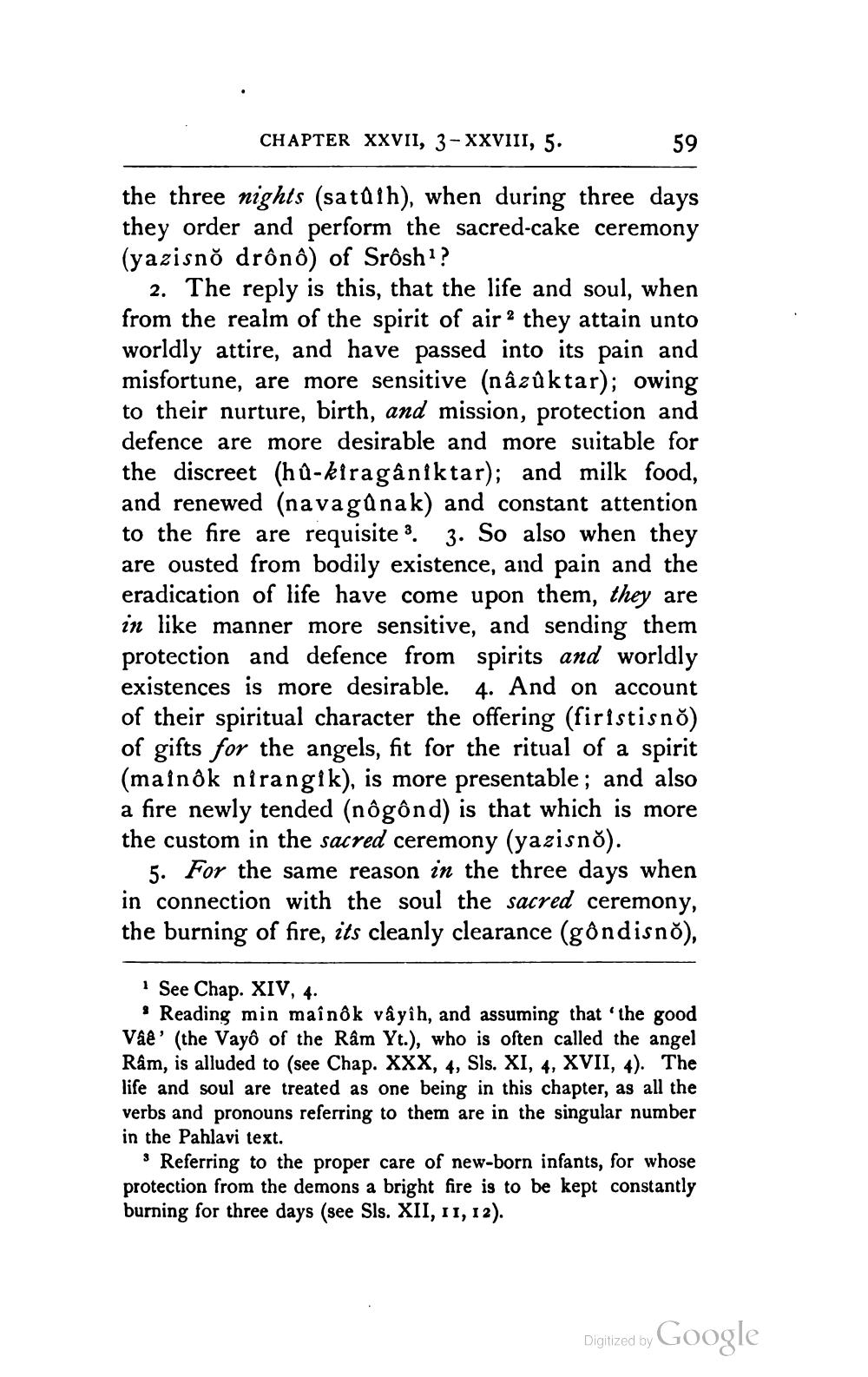________________
CHAPTER XXVII, 3-XXVIII, 5.
59
the three nights (satuih), when during three days they order and perform the sacred-cake ceremony (yazisně drônô) of Srôsh??
2. The reply is this, that the life and soul, when from the realm of the spirit of air 2 they attain unto worldly attire, and have passed into its pain and misfortune, are more sensitive (nâzûktar); owing to their nurture, birth, and mission, protection and defence are more desirable and more suitable for the discreet (hû-kiragâniktar); and milk food, and renewed (nava gunak) and constant attention to the fire are requisite 3 3. So also when they are ousted from bodily existence, and pain and the eradication of life have come upon them, they are in like manner more sensitive, and sending them protection and defence from spirits and worldly existences is more desirable. 4. And on account of their spiritual character the offering (firistisno) of gifts for the angels, fit for the ritual of a spirit (mainôk nirangik), is more presentable; and also a fire newly tended (nôgônd) is that which is more the custom in the sacred ceremony (yazisno).
5. For the same reason in the three days when in connection with the soul the sacred ceremony, the burning of fire, its cleanly clearance (gôndisno),
See Chap. XIV, 4. * Reading min mainôk vâyîh, and assuming that 'the good Vae' (the Vayô of the Râm Yt.), who is often called the angel Râm, is alluded to (see Chap. XXX, 4, Sls. XI, 4, XVII, 4). The life and soul are treated as one being in this chapter, as all the verbs and pronouns referring to them are in the singular number in the Pahlavi text.
* Referring to the proper care of new-born infants, for whose protection from the demons a bright fire is to be kept constantly burning for three days (see Sls. XII, 11, 12).
Digitized by Google




